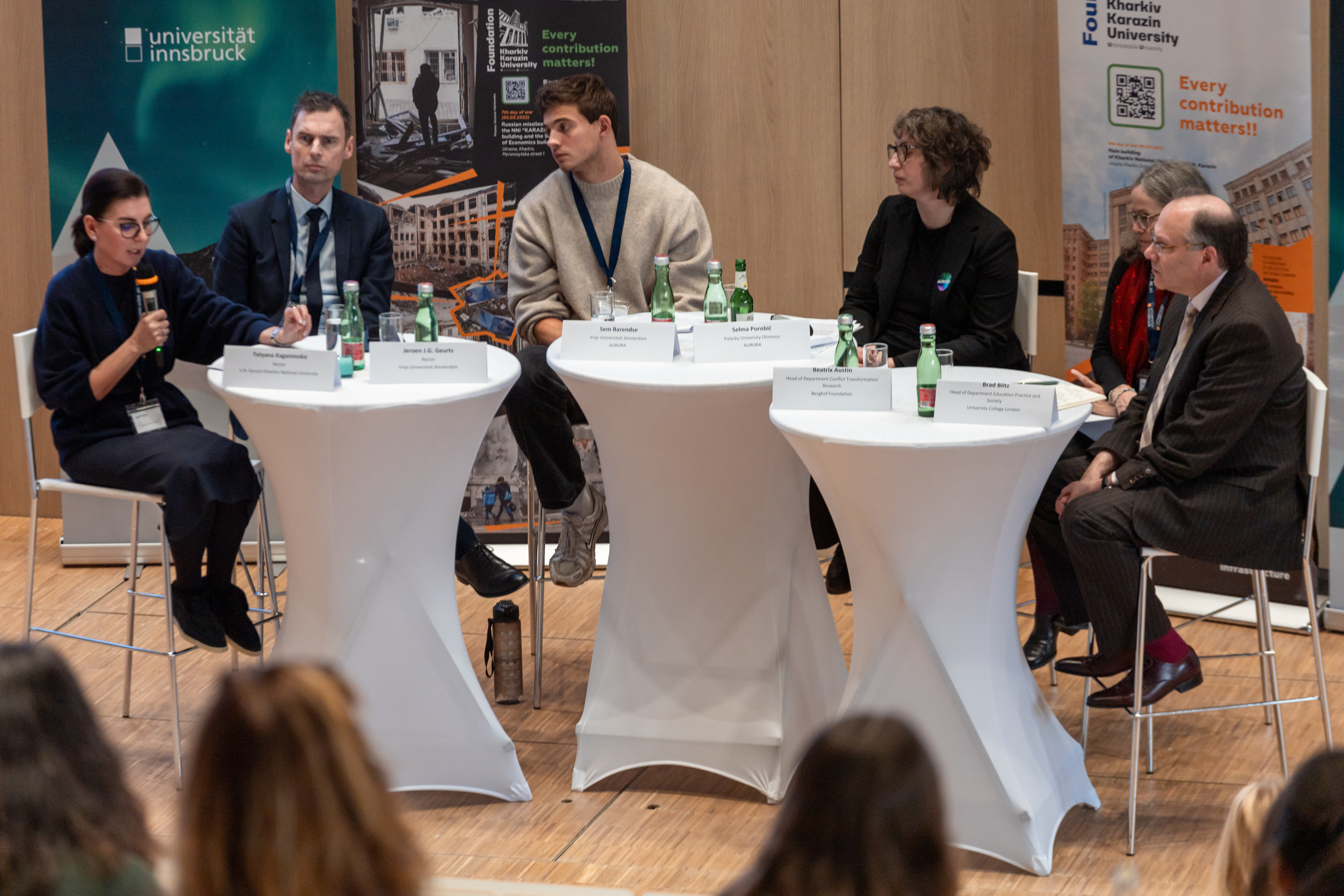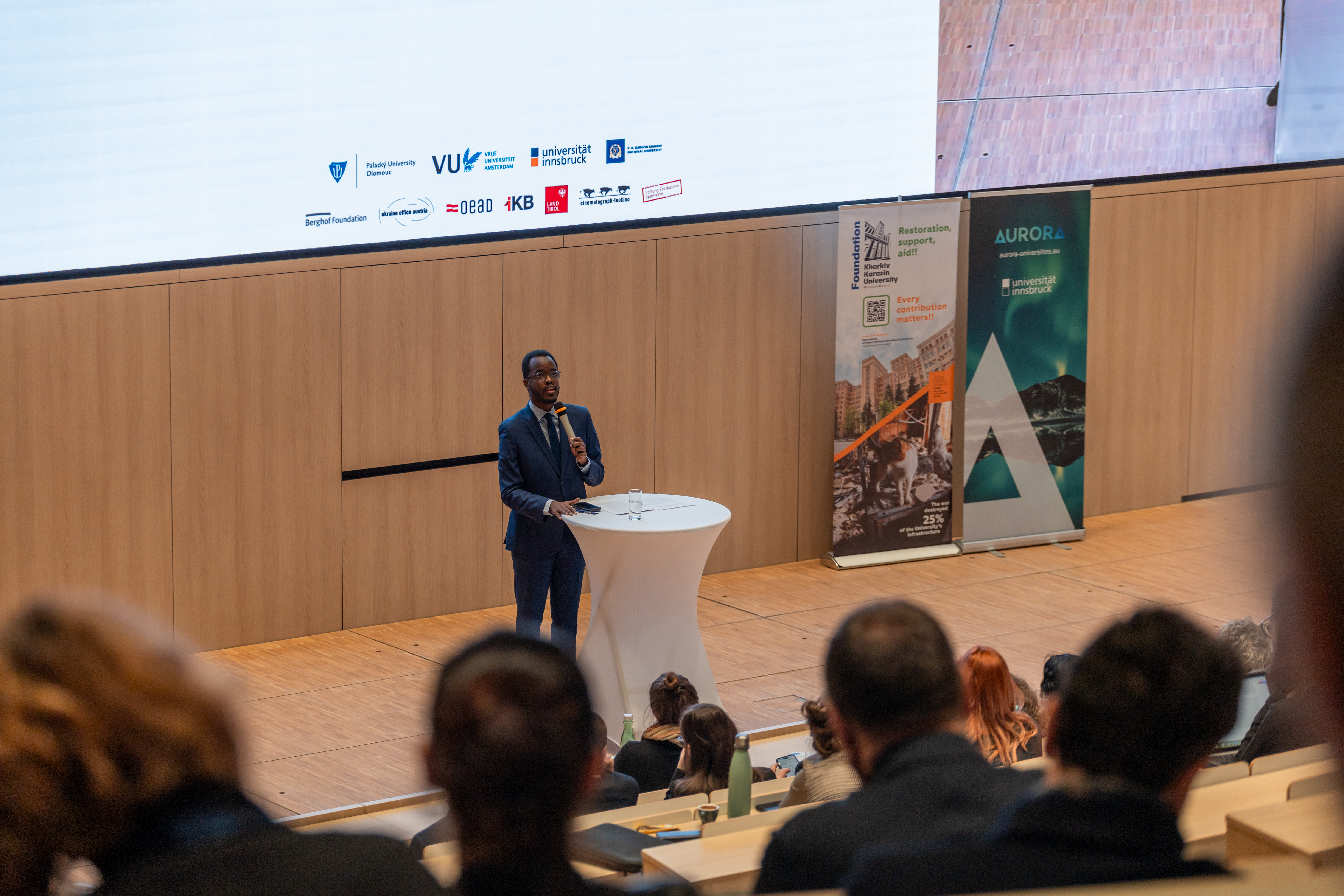Education for Peace: Highlights from the Aurora International Peace Conference

From February 17 to 21, Aurora hosted its first international scientific conference. The “Aurora International Peace Conference: The Role of Higher Education in Peacebuilding” gathered academics, professionals and students from across the globe to explore one important question: How can education contribute to lasting peace?

Aurora International Peace Conference on The Role of Higher Education in Peacebuilding gathering international experts, scholars, practitioners, policymakers, staff and students from Aurora universities
The Aurora International Peace Conference: The Role of Higher Education in Peacebuilding served as a dynamic platform for discussion, innovation, and collaboration. Against the backdrop of rising global conflicts, threats to academic freedom, and increasing societal distrust in science, the conference aimed to foster new strategies for universities to play an active role in peacebuilding.
With a diverse lineup of speakers, engaging discussions, and participants from over 20 countries, the event not only strengthened academic collaboration but also underscored the urgency of integrating peace education into higher learning institutions.
Aurora Karazin University Peace Education Hub
The “Aurora International Peace Conference: The Role of Higher Education in Peacebuilding” was a joint effort of the Karazin University Peace Education Hub, led by Palacký University Olomouc and Vrije Universiteit Amsterdam (VU Amsterdam), Karazin Kharkiv University, the Unit for Peace and Conflict Studies of the Universität Innsbruck, and the Berghof Foundation, a key player in peace education.
Globally, higher education institutions face challenges from conflicts, human rights abuses, and restrictions on academic freedom. Engaged students and faculty demand their university management responds to their calls for solidarity. There is also growing societal distrust in science, just five years before the 2030 UN Sustainable Development Goals deadline. The 2022 Sustainable Development Goals Report showed concerning progress, indicating that interconnected crises threaten the Agenda and humanity’s survival.
Through the Aurora Karazin University Peace Education Hub, Aurora organized this conference to foster discussions on the global situation and enhance collaborative peacebuilding.


Plenary session on “Universities’ Peacebuilding Practices and Knowledge Diplomacy” with conference participants at the Agnes Heller Haus of the Universität Innsbruck
At the conference, we continued our ongoing support of Karazin University, a key institution on the front lines in Ukraine. Together with our partners, we granted 18 scholars Aurora scholarships to attend the conference. Additionally, Aurora universities assisted Rector Tetyana Kaganovska and her team of Vice Rectors in participating in the conference.
“Reflecting on the conference, we are pleased that it has connected our efforts to establish the Peace Education Hub and support Karazin University with a diverse community of practitioners and policy experts in humanitarian, development, and peace studies. This is vital for our future support to partners in Ukraine and Aurora universities, focusing on academic collaborations while also engaging all stakeholders beyond academia,” said Selma Porobić, Aurora Institutional Coordinator at Palacký University Olomouc.
A Crucial Gathering for Peace and Education
The urgency of the conference was demonstrated by the overwhelming response and attendance of over 300 participants. The conference received over 200 papers submissions, and 147 speakers from more than 20 countries participated in the conference. They ranged from international experts, scholars, practitioners, and policymakers, to students from Aurora universities. The event brought together both longstanding partners and many new and potential collaborators.
The programme featured 10 keynote speakers, 3 plenary sessions, 22 academic panels, 8 roundtables, 18 workshops, and numerous exhibitions and films.
Keynote speakers included Madeleine Rees (former Secretary-General Women’s International League), Beatrix Austin (Berghof Foundation), Frank Geary (Scholars at Risk Europe), Oleksandra Matviichuk (Center for Civil Liberties Ukraine), Ian S. Manzi (Global Children’s Issues), Marko Lehti (Tampere Peace Research Institute), Savo Heleta (South African Peacebuilding scholar), and Norbert Koppensteiner (Kroc Institute).

Opening keynote address by Ian Manzi from Global Children’s Issues at Georgetown University on “Redefining Expertise for Sustainable Peacebuilding”
The conference topics encompassed peace agendas in the most urgent humanitarian contexts, including Ukraine, Palestine, Sudan, and the Democratic Republic of the Congo (DRC), and the realities of education following global atrocities. Participants examined critical lessons learned and strategies for managing collective trauma and long-term societal recovery from contemporary and historical perspectives.
“The Aurora Peace Conference is a good start showcasing the high importance and emergency of global strategies for peacebuilding initiatives in higher education. We can’t simply “build” peace, but rather need to implement a “culture of peace” as a value through education,” said Oleksandr Khyzhniak, Project Manager at VU Amsterdam.
As the Aurora International Peace Conference demonstrated, higher education has a vital role in shaping a just and lasting peace— where knowledge, collaboration, and resilience drive meaningful change beyond the walls of academia.